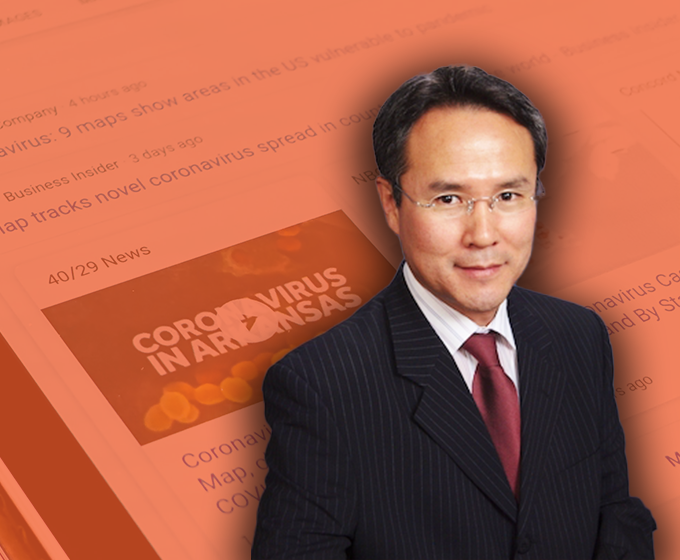
Kang is a professor in the Department of Communication and is associate dean for research in the College of Liberal and Fine Arts at UTSA.
JANUARY 14, 2021 — The COVID-19 vaccine is currently known to be the best solution to stop the spread of the virus. Yet more than eight in 10 Americans believe they have encountered fake news. Twenty-one percent of American adults say they will not get a COVID-19 vaccine, according to the Pew Research Center. The widespread sharing of misinformation, coined by researchers as an “infodemic,” has the potential to cause significant challenges for COVID recovery efforts. Journalists and the public must unite to ensure that accurate information about the vaccine is widely available and misinformation is dispelled.
Most misinformation takes place on media channels, including news websites, Facebook, Twitter, Instagram and YouTube, where the dissemination of incorrect COVID-19 vaccine information reaches large audiences.
Recent research discovered that most of COVID-19 vaccine misinformation on social media is peddled by news bots and foreign adversaries. A recent report from the Center for Countering Digital Hate also found that antivaccine networks on social media have over 57 million followers globally. Misinformation disproportionately affects certain sectors of American society, such as immigrants, who are thought to be at greater risk, because social media channels are major information sources for them.
The challenge of sharing accurate information is further compounded by “news framing,” where journalists or citizens emphasize only some aspects of an issue, resulting in infodemics. This news focus has the potential to mislead audiences to understand the issue in a limited way.
One approach to position the benefits of the vaccine is to highlight falsehoods (for example, those who are vaccinated will be microchipped and under government control). When an unidentified news website spreads health risks and political conspiracies regarding the vaccine, such skewed framing can eventually influence negative social consequences including fear, antivaccine protests and opinion polarization.
Those who create vaccine conspiracies appeal to personal identity (who I am and where I belong) and political ideology. When news articles about the COVID-19 vaccine agree with people’s identities or political views, readers tend to believe that the stories are accurate despite inaccuracy. The people in the same identity and political groups may only want to support in-group views and refrain from out-group viewpoints. As a result the spread of misinformation lowers the credibility of news outlets. Experts in the COVID-19 vaccine emphasize that science and objectivity should come before pseudoscience and framed misinformation.
What possible solutions could there be for preventing the spread of misinformation about the COVID-19 vaccine? First, major news organizations need to verify vaccine information thoroughly before publication. Journalists should share only officially published scientific results with their audiences.
Second, the role of public figures in both the government and social sectors is crucial. COVID-19 vaccination may directly influence the medical field and the economy as well as people’s health. Leading health, government and business officials, and other influencers’ voices can be used to deliver accurate information and contribute to public opinion on COVID-19 vaccination. Accurate vaccine-related information with public figures’ endorsements will raise the credibility of the news and positively influence all Americans. As seen in news media lately, public figures’ vaccinations on live television can bolster Americans’ confidence with COVID-19 vaccination.
Third, Americans are the most important role players in filtering out and correcting misinformation on the COVID-19 vaccine. Americans need to self-monitor news and information about the vaccine proactively and critically. They should be aware of information in the news by fact checking and cross checking what they view on news websites and social media.
Nondiscriminatory, accurate information about the COVID-19 vaccine will protect all Americans. The consequences of misinformation on the vaccine can lower vaccine adoption. Therefore, concerted efforts to send and receive accurate information will offer our country opportunities to recover from COVID-19 more efficiently and effectively.
UTSA Today is produced by University Communications and Marketing, the official news source of The University of Texas at San Antonio. Send your feedback to news@utsa.edu. Keep up-to-date on UTSA news by visiting UTSA Today. Connect with UTSA online at Facebook, Twitter, Youtube and Instagram.
Move In To COLFA is strongly recommended for new students in COLFA. It gives you the chance to learn about the Student Success Center, campus resources and meet new friends!
Academic Classroom: Lecture Hall (MH 2.01.10,) McKinney Humanities BldgWe invite you to join us for Birds Up! Downtown, an exciting welcome back event designed to connect students with the different departments at the Downtown Campus. Students will have the opportunity to learn about some of the departments on campus, gain access to different resources, and collect some giveaways!
Bill Miller PlazaCome and celebrate this year's homecoming at the Downtown Campus with food, games, giveaways, music, and more. We look forward to seeing your Roadrunner Spirit!
Bill Miller PlazaThe University of Texas at San Antonio is dedicated to the advancement of knowledge through research and discovery, teaching and learning, community engagement and public service. As an institution of access and excellence, UTSA embraces multicultural traditions and serves as a center for intellectual and creative resources as well as a catalyst for socioeconomic development and the commercialization of intellectual property - for Texas, the nation and the world.
To be a premier public research university, providing access to educational excellence and preparing citizen leaders for the global environment.
We encourage an environment of dialogue and discovery, where integrity, excellence, respect, collaboration and innovation are fostered.